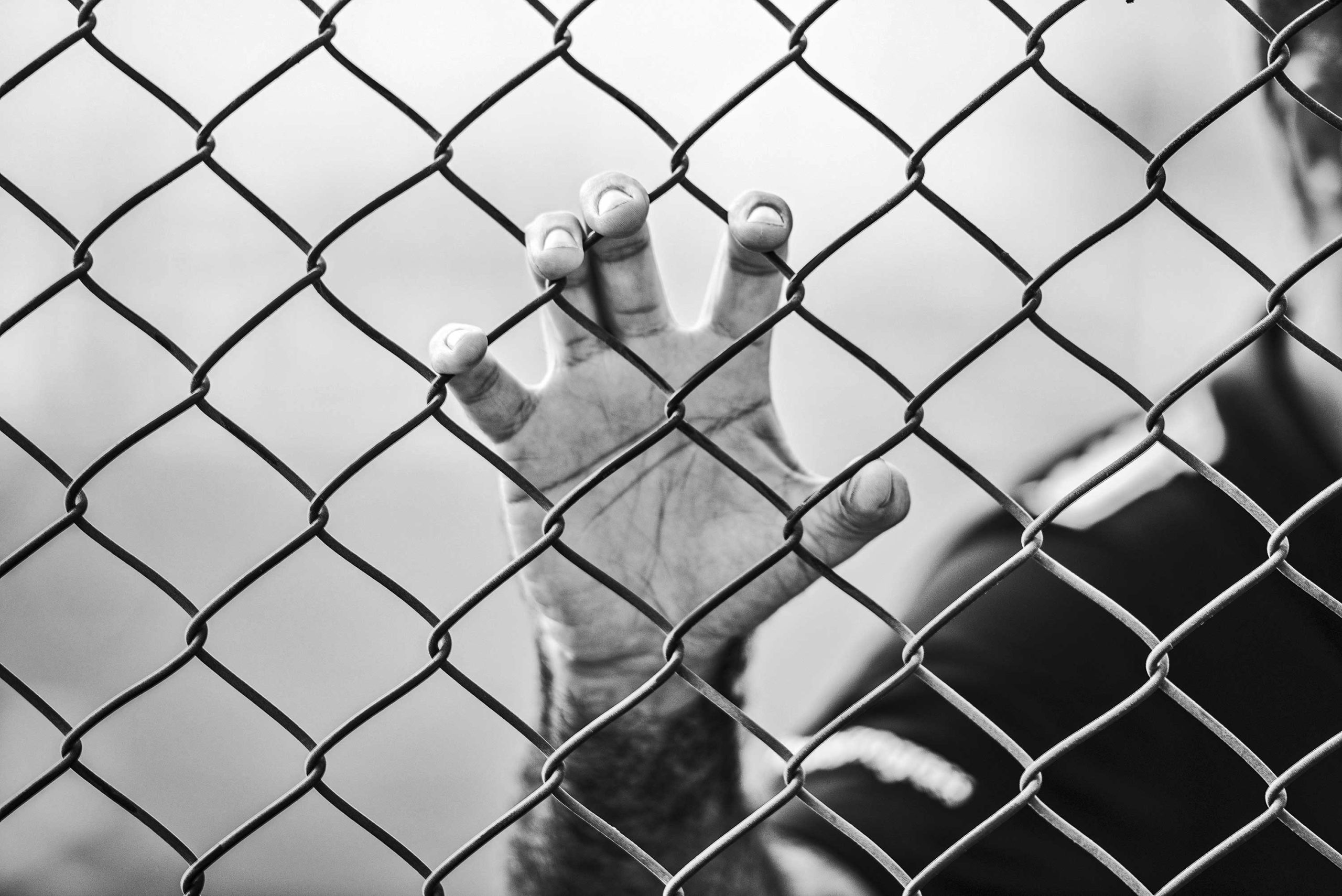

With one of the lowest incarceration rates globally, Norway has one of the world's most progressive and humane approaches to prison, with an emphasis on rehabilitation and reintegration (Berger, 2016). Nevertheless, like most prison populations, there is a high need for mental health and social care among people in Norwegian prisons. A national survey found that 92% of incarcerated individuals had a mental disorder (Cramer, 2014).
The beliefs individuals hold about the causes or causes of mental health problems influence the way they think about and respond to them and influence their help-seeking behaviour. “Incarceration” refers to the psychological changes that occur as a result of prison life (Haney, 2001). Factors influencing these changes include loss of autonomy and separation from support networks. The prison environment and regime can also have a negative impact on mental health.
In order to address the mental health needs of incarcerated individuals, it is important to understand how they conceptualize their mental health and how these conceptualizations influence their coping choices. The subject of this blog is Solakken et al. (2023) which aims to address this need.

“Prison” can change someone's thoughts, feelings, and behaviors. There is limited insight into how this may affect their beliefs about mental health and coping.
Methods
A qualitative design was used and a relativistic ontological stance was adopted that recognized subjective realities and the co-construction of knowledge between researchers and participants. Fifteen in-depth interviews were conducted in three men's prisons in Northern Norway. Participants were mostly Norwegian citizens with an average age of 44. Their prison experiences varied, but all had mental health problems in prison.
Semi-structured interviews lasted 60–90 minutes and aimed to explore mental health, prison culture and help-seeking. Elements of Grounded Theory were used in the analysis, including line-by-line coding and the development of conceptual categories from the data. Collaborative, reflexive process guided interpretation.
Results
Three themes (with related subthemes) were identified: perspectives on mental health, beliefs about the effects of incarceration on mental health, and beliefs about managing mental health problems.
Participants described mental health as a multifaceted concept that encompasses balance and well-being and identifies coping strategies such as exercise and social contact. They felt that prison life had changed their perspective on mental health by emphasizing the importance of social connections and meaningful activities. Self-isolation was considered a clear sign of mental health problems, and depressive symptoms were the most frequently described. Participants emphasized the link between mental health and the social environment, noting the impact of prison stressors on worsening mental health problems. Mental health problems were felt to be caused by factors as diverse as parental neglect, poverty, violence and trauma.
Incarceration was inextricably linked to participants' definitions of mental health, with a clear link between the incarceration process and poor mental health. Anxiety problems were generally discussed. Many individuals shared experiences of their peers and talked about prison conditions, the amount of time spent in solitary, lack of independence, and meaningful activities that were detrimental to mental health.
In terms of preference for managing mental health problems, peers were seen as crucial for support and psychosocial strategies were preferred over medication. Although the effectiveness of the drugs was accepted, there were concerns about side effects and addiction. However, ADHD was viewed differently; This was considered a more acceptable diagnosis in prison, and participants were more likely to take the medication. ADHD was also discussed by participants as an explanation for their offending behavior.

Participants perceived that prison conditions, such as time spent in solitary confinement and lack of autonomy, had a significant impact on mental health.
Results
A key finding of the study is that participants' beliefs about mental health and how problems are managed are highly integrated with the prison experience.
Participants varied in their understanding of mental health, but tended to attribute mental health problems to the stresses of the prison environment rather than internal causes. Both import theory (Irwin & Cressey, 1962) and deprivation theory (Sykes, 2007) offer perspectives on how participants' mental health beliefs are linked to their prison experience and the complex interplay of factors: import theory emphasizes the influence of pre-state. Current characteristics, on the other hand, deprivation theory, emphasize the influence of the prison environment itself. Social support and meaningful activities were emphasized as important factors for well-being, and non-medical interventions were preferred when it came to managing mental health problems.

Prisoners' beliefs about mental health are strongly integrated with their experience of prison.
Strengths and limitations
Adopting a qualitative approach is a strength of Solakken et al.'s (2023) study. This enabled an in-depth study of participants' perspectives on mental health in the prison context. The study also included a sample of participants with different prison experiences from three different prison institutions.
However, as with all studies, there are some limitations worth noting. The authors acknowledge that self-selection of the sample is a limitation of their work; those who volunteered to participate may have different opinions than those who did not. Indeed, the authors note that the results apply only to those who participated in the study and do not make wider claims about the generalizability of the work to prisons in Norway or further afield. Nevertheless, while providing some context on the prison system in Norway, it would be useful to understand how well the included prisons are representative of the wider system. Similarly, the authors do not provide a detailed description of participant demographics, rightfully so as to preserve anonymity, but some comment on whether the participants are broadly representative of the prison population would be helpful to better contextualize the results.
There is a detailed description of the review process that provides a good level of transparency, but the lack of position notice is a limitation. Although the researchers' epistemological position is clearly stated, understanding how the researchers' backgrounds and perspectives influence the analysis would provide a more nuanced understanding of their interpretation of the data.

The qualitative nature of the study allows for an in-depth examination of mental health in a prison context, although this could have been better contextualized in terms of the Norwegian prison system.
Implications for practice
Despite some limitations, these findings have implications for the development and implementation of mental health interventions and policies in prison settings. In Norway in particular, the authors highlight that improving services for people in prison is part of the Norwegian governments ten-year mental health plan.
The finding that people in prison perceive their mental health as related to the prison environment highlights the need for holistic approaches that consider the wider social, environmental and cultural factors that influence mental well-being, as well as clinical symptoms. The authors suggest that it is important for clinicians to explore and acknowledge patients' mental health beliefs in order to ensure effective communication between health professional and service user, ensuring that treatment is adjusted according to need. In addition, understanding the challenges of prison conditions in relation to patients' mental health is necessary to strengthen treatment linkages.
In terms of policy, the findings highlight the importance of promoting mental health in prison, suggesting that providing people in prison with opportunities to engage in meaningful activities, work and education is essential to enhancing well-being. It fits healthy prison test Accepted by HM Inspectorate of Prisons in England and Wales; purposeful activity is one of four criteria assessed to determine whether a prison is “healthy”. Purposeful activity is defined as the ability and expectation of people in prison to engage in activities that benefit them. Policymakers should consider ways to increase opportunities for this in the restrictive prison environment.
Similarly, social isolation is recognized as a risk factor for poor mental health outcomes (Grav et al., 2012), and this study adds to the evidence base advocating the importance of social connectedness. Research identifies peers as an important component of social support for enhancing well-being in prison. Although prison provides opportunities to connect with friends and family in the community, this is limited in several ways. Consequently, peer relationships are becoming increasingly important as an accessible form of support. Peer relationships in prison are not unproblematic and therefore studies investigating and evaluating peer interventions, e.g. Samaritans Listener scheme, social support is needed to facilitate. Improving the health outcomes (and beliefs about positive health outcomes) of incarcerated people can increase the chances of successful reintegration after release. Further research may be useful to understand how mental health beliefs influence people's motivation for rehabilitation after discharge.

These findings suggest that prisons need to take a holistic approach to improving mental well-being, taking into account the wider social, environmental and cultural factors that influence mental well-being, as well as clinical symptoms.
Statement of interest
None.
Connections
Primary paper
Solbakken, LE, Bergvik, S., & Wynn, R. (2023). Beliefs about mental health in incarcerated men: a qualitative interview study. Frontiers in Psychiatry, 141242756.
Other references
Berger, R. (2016). Kriminalomsorgen: A look at the world's most humane prison system in Norway. Available here: https://ssrn.com/abstract=2883512
Kramer, W. (2014). Prevalence of mental disorders among sentenced prisoners in Norwegian prisons. Oslo University Hospital. Available here: Hel_oppdatert_Victoria_Cramer_rapport_engelsk.pdf (sifer.no)
Grav, S., Hellzèn, O., Romild, U. & Stordal, E. (2012). The relationship between social support and depression in the general population: The HUNT study, a cross-sectional survey. Journal of Clinical Nursing, 21,111-120.
Haney, J. (2001). The psychological impact of incarceration: Implications for post-prison adjustment. University of California. Available here: The Psychological Impact of Incarceration: Implications for Post-Incarceration Adjustment | ASPE (hhs.gov)
Irwin, J. and Cressey, DR (1962). Thieves, convicts and prisoner culture. Soc. Probs., 10142.
Sykes, GM (2007). A society of prisoners: A study of a maximum security prison. Princeton University Press.
